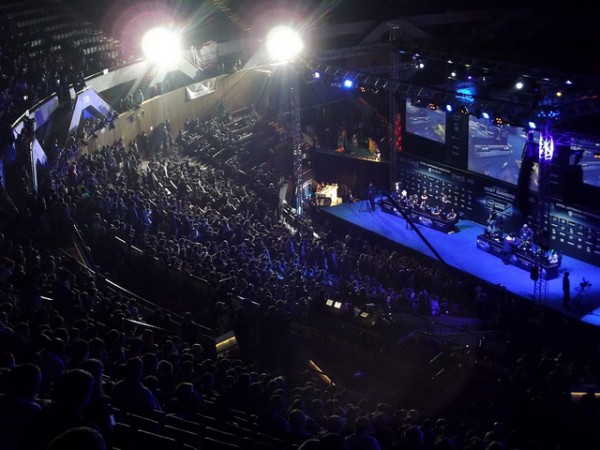Brain's "Middle Age" Might Actually Be 25: Study

For most people, the peak of their mental and physical performance may actually be 24 years old, according to researchers who are investigating the relationship between cognitive motor function and age.
Most people think of "middle age" -- around the age of 45 -- as the turning point in one's life. From there-on, we start to notice that our bodies are growing old, frail, and slow. However, according to a new study published in the peer-reviewed scientific journal PLOS One, researchers are suggesting that cognitive motor performance when conducting complex tasks actually peaks in most people by the time they are 24 years old.
Researchers from the Simon Fraser University in Burnaby, Canada determined this after analyzing observational and statistical data from over 870 hours of StarCraft 2 game-play from 3,305 players between the ages of 16 and 44.
StarCraft is a highly popular real-time strategy computer game played by hundreds-of-thousands of people across the world. The researcher selected this game as an adequate measure of cognitive motor function because the game requires an impressive level of reflex, strategy, and micro and macro-management as players work to manage their own civilizations' economy, expansion, and military growth while they simultaneously battle wars with other players on multiple fronts.
The game has even earned itself a sports-fan-like following in South Korea, with multiple television channels regularly broadcasting "professional" game-play.
Interestingly, the game's own interface provides several mean in which to measure player skill and decision-making ability, including a measure of moves-per-minute.
Using this system and their own measurements, the researchers analyzed the player's motor-cognitive function based a consideration of reaction-time, dual-task performance, total reported hours of game-play, effective use of key-bindings, and effective management of screens and maps.
Not surprisingly, although all players were measured to be equally familiar tight the game, younger players involved in the study demonstrated higher motor-cognitive speed in actions-per minute and reactions times. This decline was even seen in high-ranked players past the age of 24.
However, the researchers do note that while motor cognitive decline was apparent, this did not necessarily impact overall performance. Wizened players proved equally efficient at the game despite statistical inadequacy due to more effective use of the game's interface and key-binding systems, enabling them to retain their skill even after passing the brain's "middle age."
The study was published in PLOS One on April 9.
Apr 20, 2014 09:21 PM EDT





